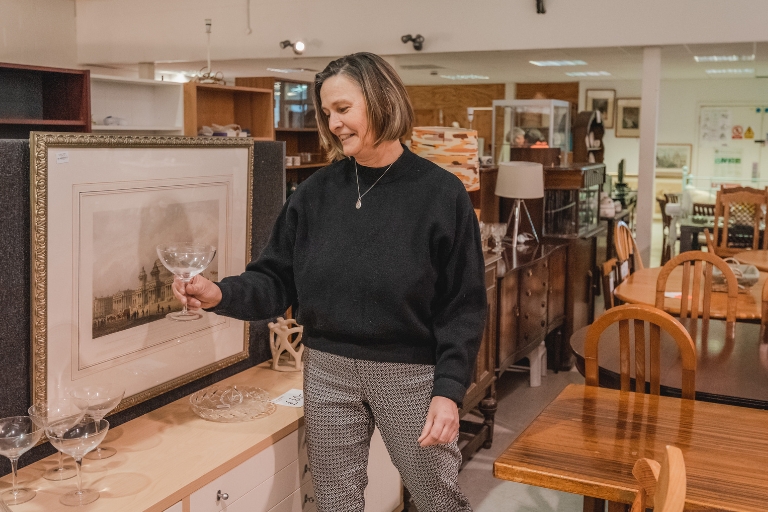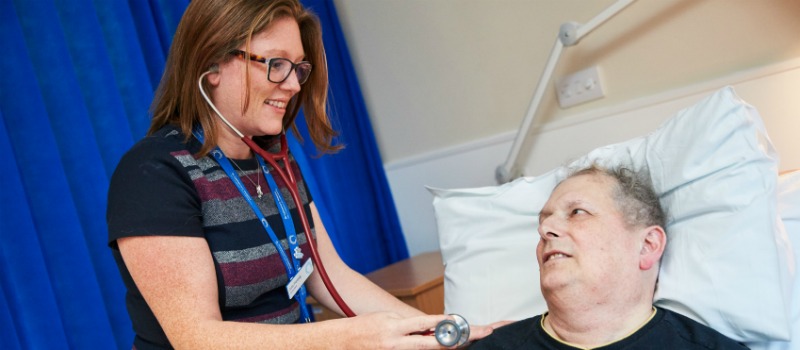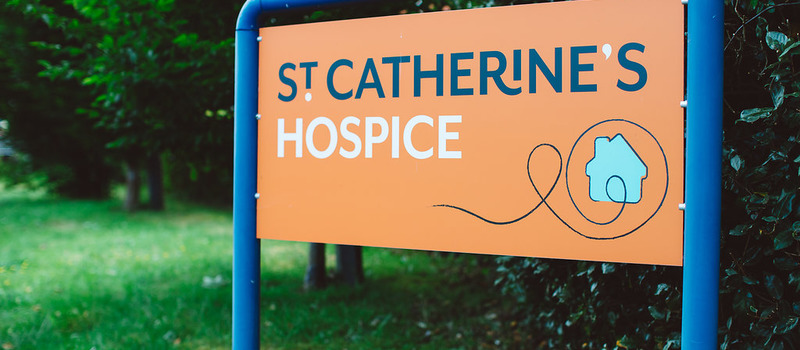What makes St Catherine’s care stand out?
Following a national review of end of life care finding most hospitals are failing to provide face-to-face palliative care specialists around the clock, we share how our expert end of life care makes a real difference to our community.
Whilst the Royal College of Physicians End of Life Care Audit report, commissioned by the Healthcare Quality Improvement Partnership (HQIP), acknowledged there has been steady improvements in end of life care over the last two years, it also highlighted areas of concern. With many hospitals not having full access to onsite palliative care specialists at evenings and weekends and only 16 out of 142 hospitals providing face-to-face palliative care specialists around the clock, researchers are concerned some patients may not getting the care they need.
St Catherine’s provides expert care round the clock
In comparison, we provide expert palliative care to people and their family and friends 24 hours, seven days a week at our Crawley Inpatient Unit and offer end of life advice via our Triage phone line, to other healthcare professionals, patients and carers. Our Triage team allows our patients, relatives and other professionals (including those in local hospitals) to benefit from expert support outside of normal working hours.
We share our knowledge with other professionals
As well as providing quality patient care, we’re committed to training future palliative care specialists and educating fellow healthcare providers. We know many people will die in non hospice settings like hospitals, care homes and nursing homes, so our teams host courses to share our expertise. We also welcome a variety of different healthcare students and professionals on visits and placements. This collaborative approach helps us ensure the best end of life care is available to as many local people as possible, wherever they’re cared for.
We also provide guidance on bereavement
We also work closely with local businesses and faith leaders to offer guidance on bereavement and end of life. This enables members of our local community who come across people facing death and bereavement to help them deal with this in the most appropriate way. Additionally, we remain dedicated to improving our own care and the care offered in other hospices through engaging in research studies which consider the views and experiences of our patients and relatives.
Furthering our commitment to helping as many local people as possible to benefit from the kind of end of life care they deserve, we’re awaiting a decision on plans for a potential new hospice at Pease Pottage.
Patricia Brayden, Medical Director at St Catherine’s, said: “Whilst the recent end of life care audit found that hospitals still have work to do, we’re pleased it also noted important improvements. There’s still much to do to make end of life care better for all and although we already offer training and expert advice to our NHS colleagues and 24 hour care in our Inpatient Unit, with increased funding, we and the NHS could do so much more.”












